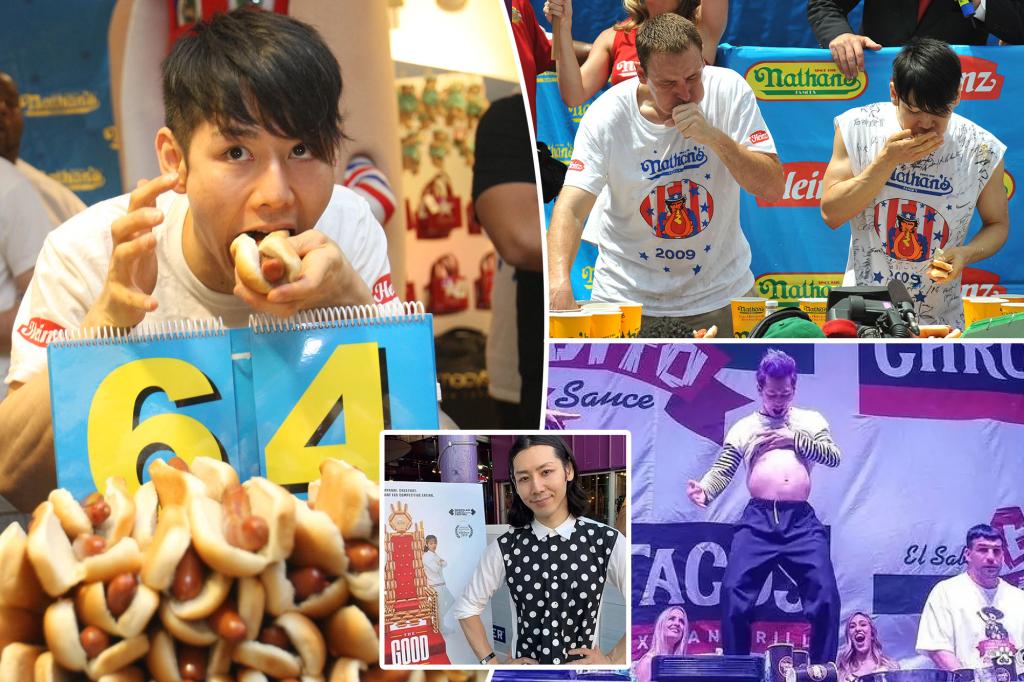Takeru Kobayashi, the Japanese competitive eating legend, has announced his retirement from all future food challenges due to a loss of appetite for highly processed foods. The 46-year-old made this decision after doctors discovered that his brain had become repelled by processed food. He expressed concern about the consequences of his decision but emphasized the importance of repairing his brain and gut for his overall health.
Kobayashi rose to fame for his incredible eating abilities, winning six consecutive Nathan’s Hot Dog Eating Contests and earning up to $650,000 per year. His competitive eating career began in 2000 when he consumed large quantities of food on a Japanese reality show. He quickly gained worldwide attention and participated in various eating events, including the Nathan’s Hot Dog Eating Contest where he secured victory from 2001 to 2006 by eating an impressive 53 hot dogs in just 12 minutes.
In recent years, Kobayashi noticed a decline in his appetite and a lack of hunger, sometimes going days without eating. He explained that overeating can lead to a loss of the ability to smell food and ignore signals from the body, such as feeling full. Doctors analyzed his brain scans and found that the areas related to nausea were activated when he saw food, suggesting that his brain still perceived food consumption as a competition and activated self-defense mechanisms to prevent overeating.
In an effort to improve his health, Kobayashi is now focusing on consuming more nutritious foods in smaller portions to rewire his brain and live a healthy, long life. He expressed his desire to quit competitive eating contests in favor of a healthier lifestyle. The documentary “Hack Your Health: The Secrets of Your Gut” explores the impact of competitive eating on Kobayashi’s brain and highlights the importance of listening to signals from the body to maintain a healthy relationship with food.
The film features interviews with doctors and experts who explain the physiological responses to overeating and how the body can harm itself by ignoring signals of fullness. Neuropsychologist Annie Gupta and German scientist Giulia Enders discuss the effects of highly processed foods on the brain and body, emphasizing the importance of balance and moderation in eating habits to prevent negative impacts on health. Kobayashi’s decision to retire from competitive eating serves as a reminder of the importance of prioritizing health and well-being in food consumption.
Overall, Takeru Kobayashi’s retirement from competitive eating contests reflects a shift towards a more health-conscious approach to food consumption and highlights the potential consequences of overeating highly processed foods. By choosing to focus on nutritious foods in smaller portions, Kobayashi aims to repair his brain and gut health and live a healthier, longer life. The documentary “Hack Your Health: The Secrets of Your Gut” offers valuable insights into the impact of competitive eating on the body and emphasizes the importance of listening to signals from the body to maintain a balanced relationship with food.


